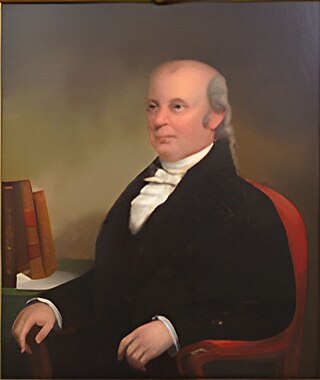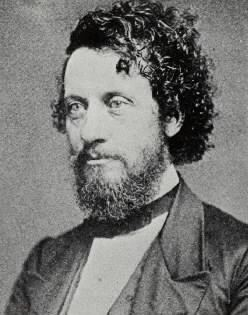
Levi Lincoln Sr. was an American revolutionary, lawyer, and statesman from Massachusetts. A Democratic-Republican, he most notably served as Thomas Jefferson's first attorney general, and played a significant role in the events that led to the celebrated Marbury v. Madison court case. He served two terms as the lieutenant governor of Massachusetts, acting as governor for the remainder of Governor James Sullivan's term after his death in December 1808. Lincoln was unsuccessful in his bid to be elected governor in his own right in 1809.

Marcus Morton was an American lawyer, jurist, and politician from Taunton, Massachusetts. He served two terms as the governor of Massachusetts and several months as Acting Governor following the death in 1825 of William Eustis. He served for 15 years as an associate justice of the Massachusetts Supreme Judicial Court, all the while running unsuccessfully as a Democrat for governor. He finally won the 1839 election, acquiring exactly the number of votes required for a majority win over Edward Everett. After losing the 1840 and 1841 elections, he was elected in a narrow victory in 1842.

Arthur MacArthur Sr. was a Scottish immigrant to America, lawyer, and judge. He was the fourth Governor of Wisconsin and was an associate justice of the Supreme Court of the District of Columbia. He was the father of General Arthur MacArthur Jr., and paternal grandfather of General Douglas MacArthur. MacArthur is the modern spelling used by his descendants, but in documents from his own time his name was spelled McArthur.

John Davis was an American lawyer, businessman and politician from Massachusetts. He spent 25 years in public service, serving in both houses of the United States Congress and for three non-consecutive years as Governor of Massachusetts. Because of his reputation for personal integrity he was known as "Honest John" Davis.

Levi Lincoln Jr. was an American lawyer and politician from Worcester, Massachusetts. He was the 13th governor of Massachusetts (1825–1834) and represented the state in the U.S. Congress (1834–1841). Lincoln's nine-year tenure as governor is the longest consecutive service in state history; only Michael Dukakis, John Hancock and Caleb Strong served more years, but they were not consecutive.

Enoch Lincoln was an American politician, serving as U.S. Representative from, successively, Massachusetts and from Maine. He was the son of Levi Lincoln Sr. and his wife, and the younger brother of Levi Lincoln Jr. Born in Worcester, Massachusetts, Lincoln graduated from Harvard College in 1807. He was elected and served as Governor of Maine from 1827 until his death in October 1829.

The 1839 Massachusetts gubernatorial election was a tightly contested race won by Marcus Morton. Under Massachusetts law at the time, a majority of the votes cast was required to win, and Morton received exactly half the votes cast. Despite the presence of some irregularities, incumbent Whig governor Edward Everett refused to contest the results once a legislative committee dominated by his party accepted a report giving Morton 51,034 votes out of 102,066 cast.

The 1838 Massachusetts gubernatorial election was held on November 12.

The 1837 Massachusetts gubernatorial election was held on November 13.

The 1836 Massachusetts gubernatorial election was held on November 14.

The 1834 Massachusetts gubernatorial election was held on November 10.

The 1832 Massachusetts gubernatorial election was held on November 12.

The 1830 Massachusetts gubernatorial election was held on April 5.

The first 1831 Massachusetts gubernatorial election was held on April 14.

The second 1831 Massachusetts gubernatorial election was held on November 14.

The 1828 Massachusetts gubernatorial election was held on April 7.

The 1827 Massachusetts gubernatorial election was held on April 1.

The 1825 Massachusetts gubernatorial election was held on April 4.

The 1833–34 Massachusetts gubernatorial election consisted of a popular election held on November 11, 1833 and a legislative vote held in January 1834. The task of electing the governor fell to the Massachusetts General Court because no candidate received the constitutionally required majority of the popular vote.






















